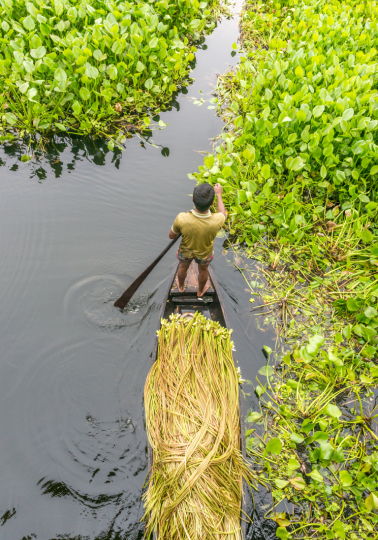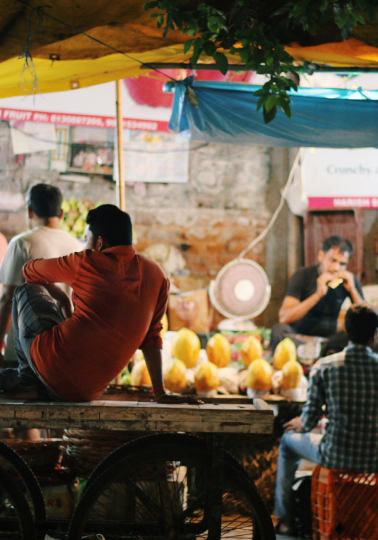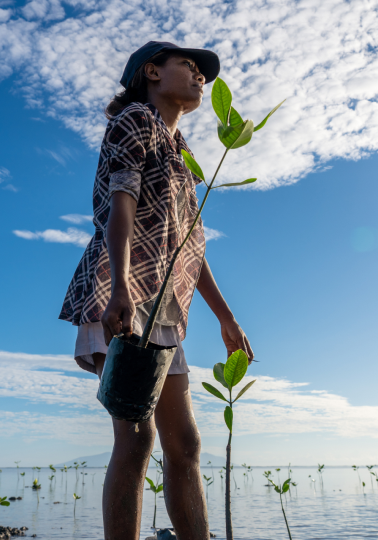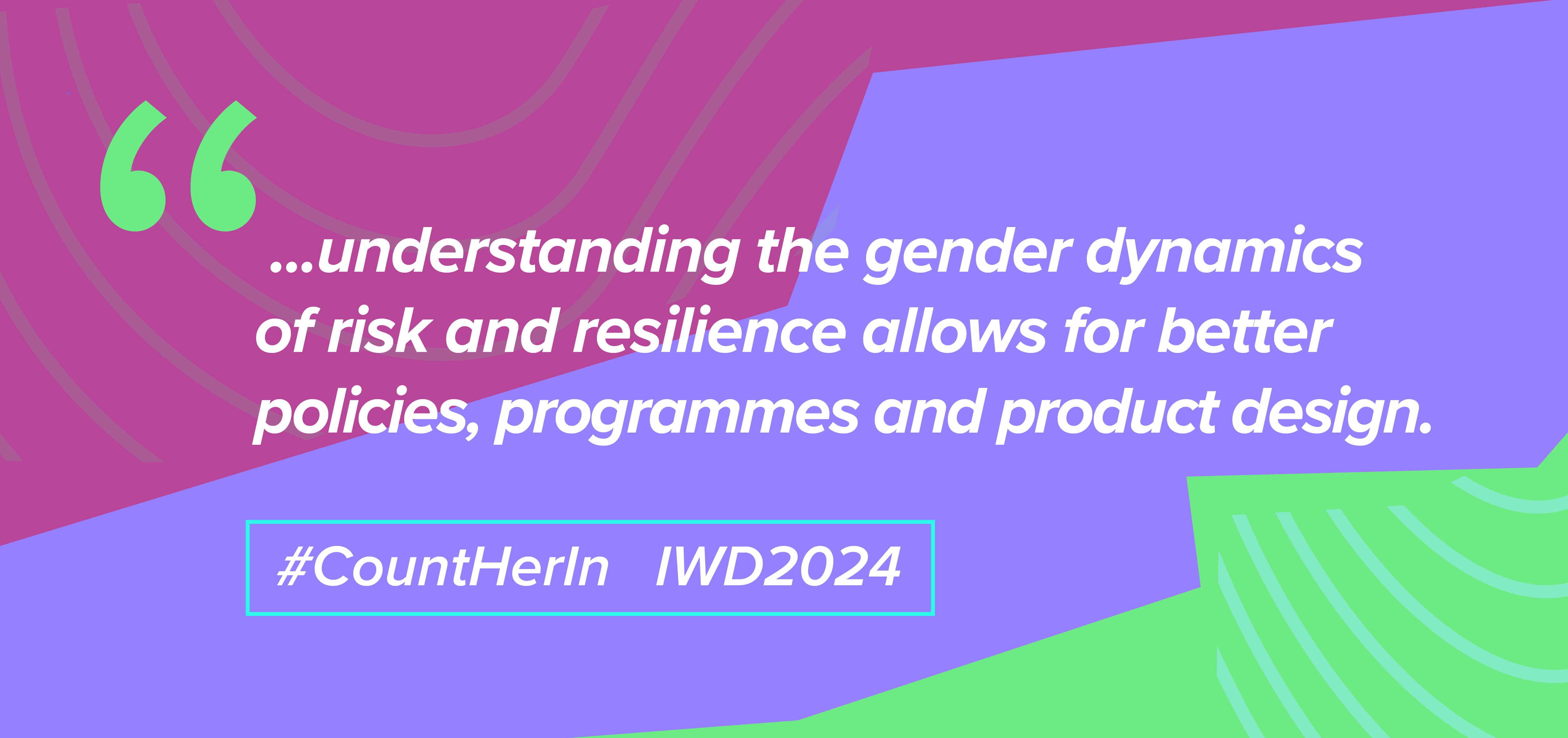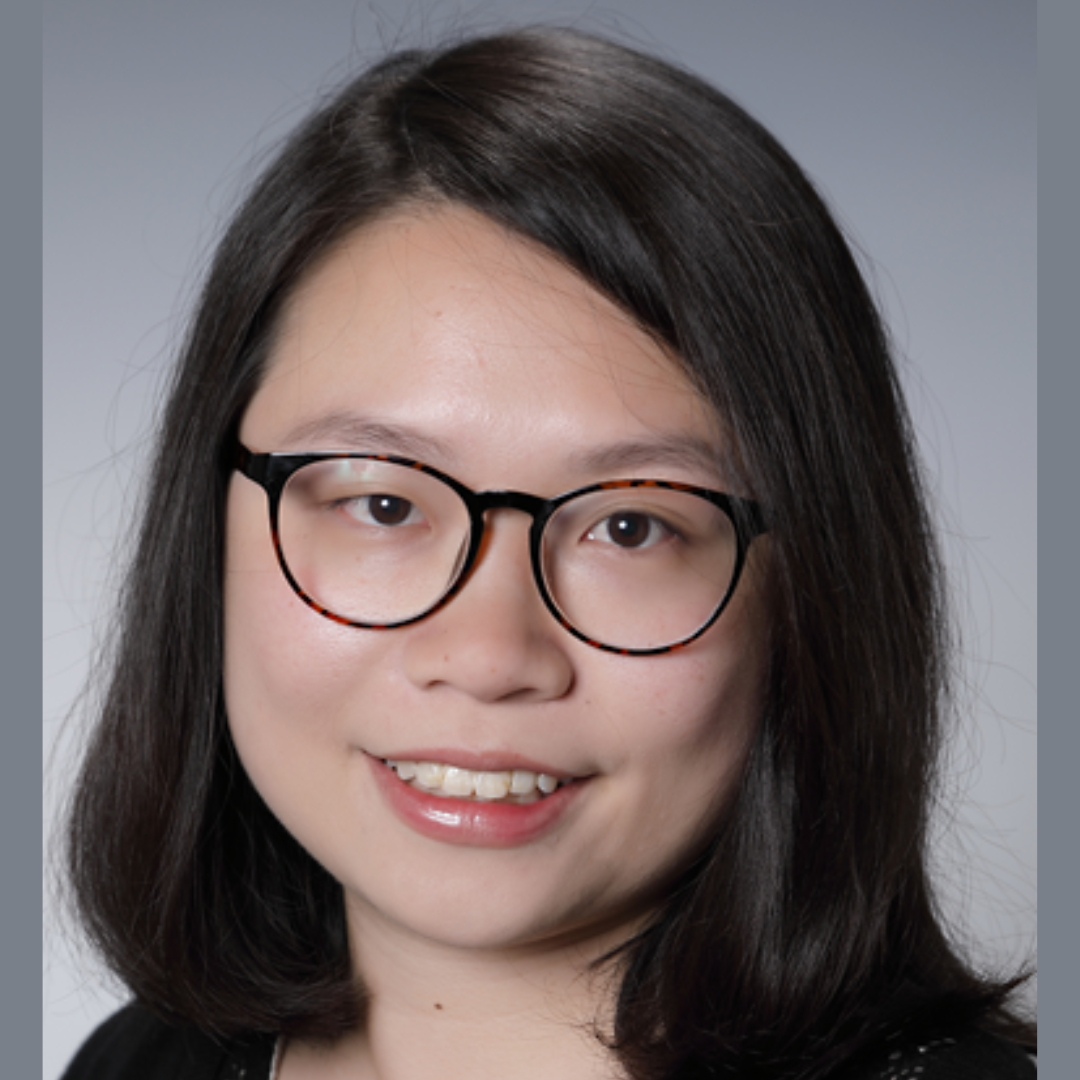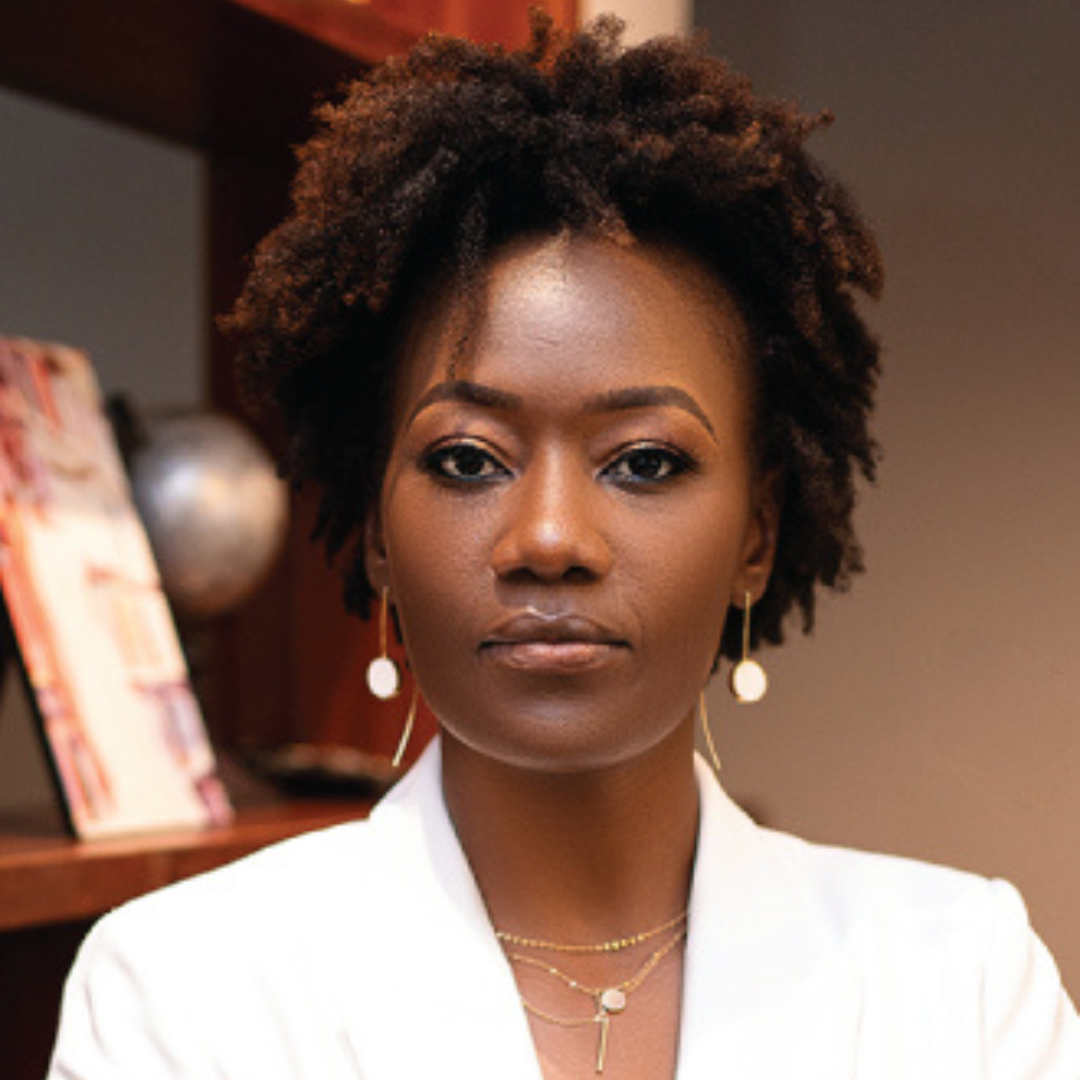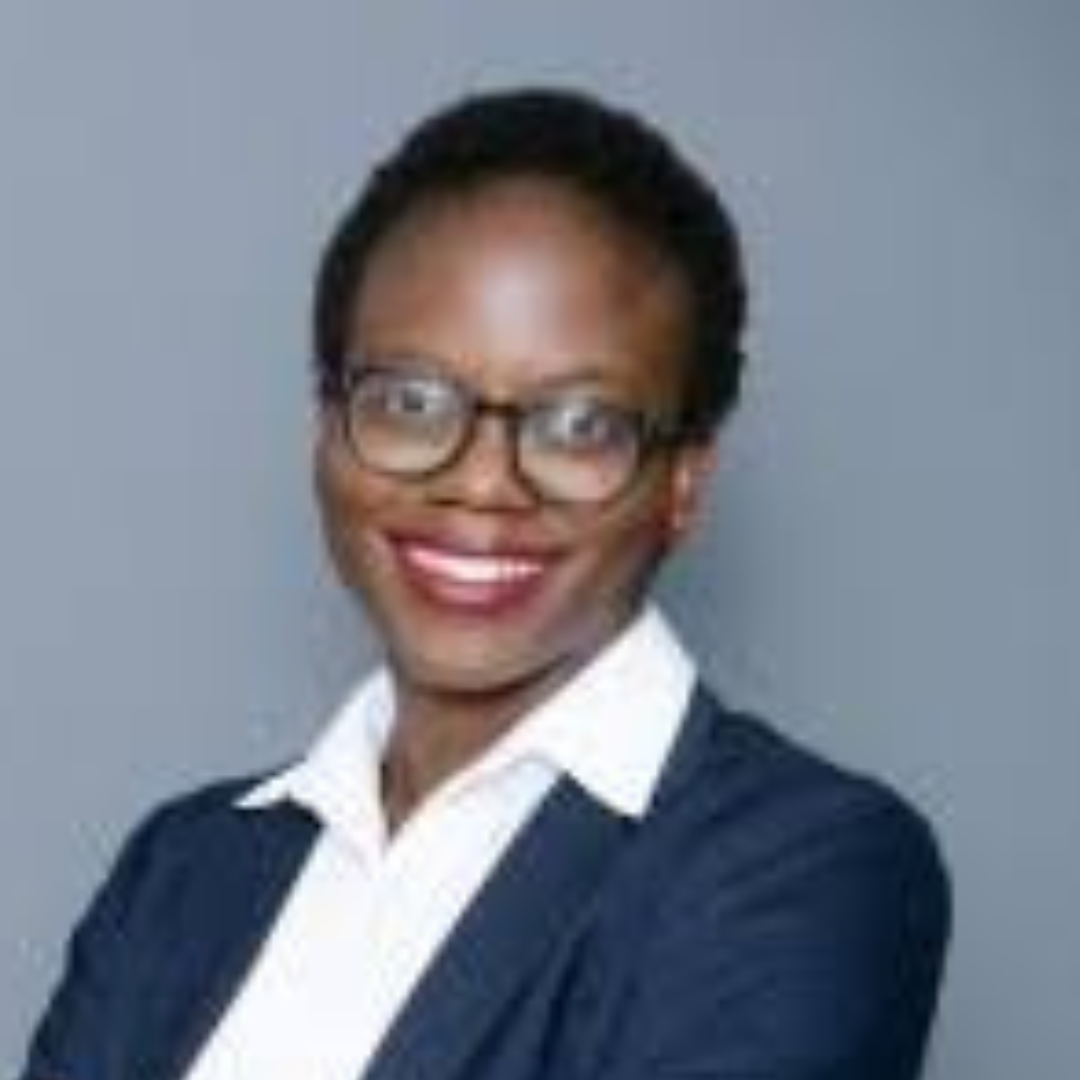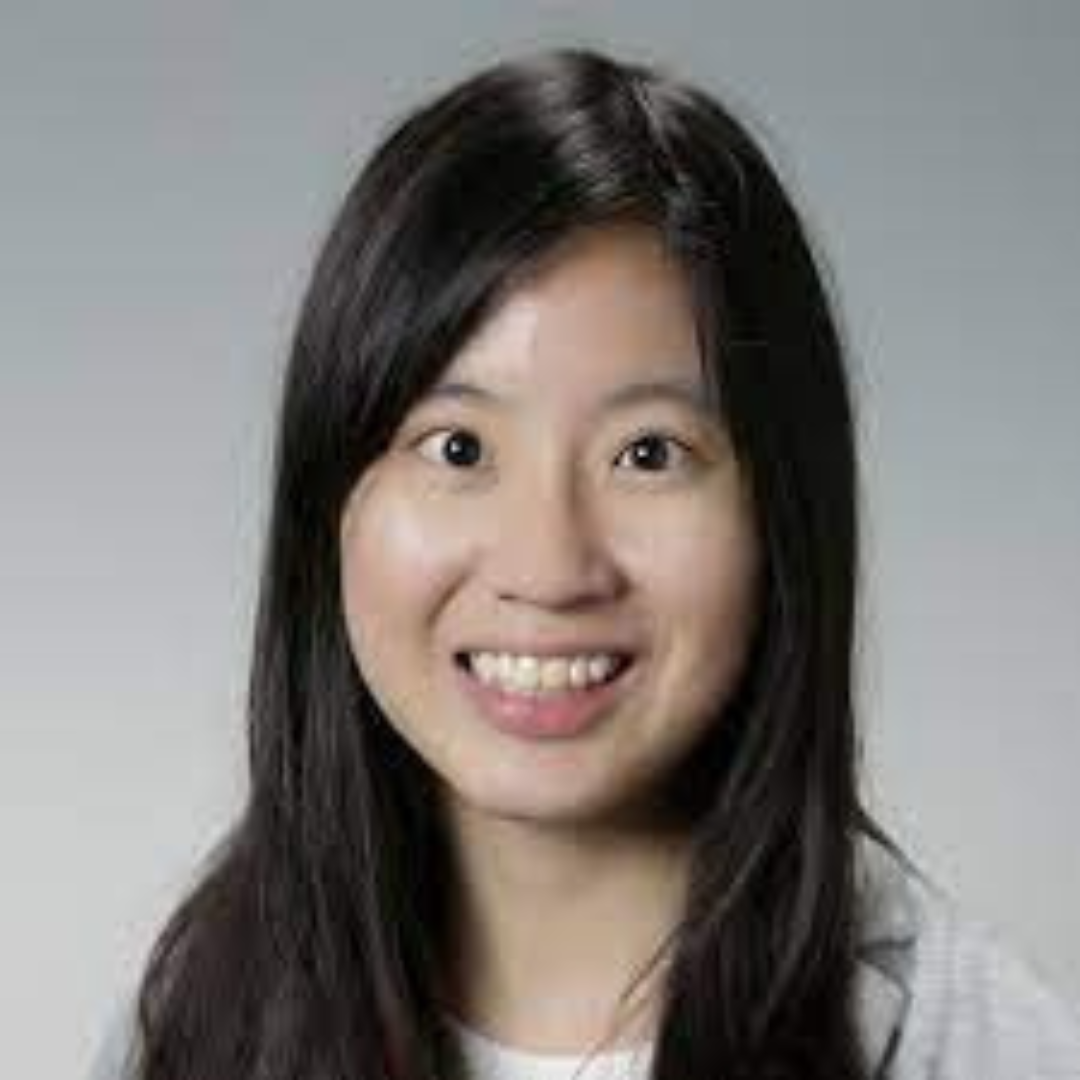Count her in: Leveraging women’s risk management acumen to drive development
The Global Goal to achieve gender equality and empower all women and girls by 2030 is not on track. Two in every ten jobs in science, engineering, and information technology globally are held by women and UN Women predicts that the labor workforce participation rate for women will remain below pre-pandemic levels in 169 countries.
As actuaries, whose profession is to apply their mathematical expertise to analyze the financial impact of risks, these statistics are a glaring reality. We see the gender differences in risks faced by women compared to men, which may be driven by biological and cultural factors. For example, women have longer life expectancy along with distinct health needs related to pregnancy and childbirth. Income gaps and social norms where women often take up greater caring responsibility in the family also result in unique protection needs.
Some risks such as those due to natural hazards as we know them, i.e. floods (hydrological), droughts (climatological), and earthquakes/landslides (geophysical) are gender neutral, but their impacts, unfortunately are not. Men, women, boys, and girls are affected differently by disasters, even in cases where they live in the same household. This includes aspects such as education, healthcare and access to maternal healthcare, loss of livelihood, and sometimes loss of lives.
Global studies show that women’s mortality from disasters tends to be higher in relation to that of men in countries where women have lower socioeconomic status. The issues of climate change and sustainability have had and will continue to have, severe and lasting impacts on our environment and economic and social development. Women are increasingly being recognized as more vulnerable to climate change impacts than men, as they constitute the majority of the world’s poor and are more dependent on the natural resources that climate change threatens the most.
Therefore, women’s and girls’ full and equal participation in risk management and decision-making processes is a top priority in the fight against climate change. Without gender equality today, a sustainable, more equal future remains beyond our reach.
One of the key areas where the actuarial profession plays a pivotal role is the insurance and risk management industry, particularly in the development and pricing of insurance products that meet the needs of society—and women. Beyond pricing, actuaries apply unique skills and a professional approach to solving complex problems, advising on future risks across diverse fields and industries.
Insurance, as a risk protection mechanism, is not a one-size-fits-all solution. Women actuaries, who understand the specific risks that women face, play an important role. They can use their expertise in data analysis and risk management to design and implement insurance products that are responsive to the needs of women vulnerable to unexpected shocks.
In our own journey through the UNDP-Milliman Global Actuarial Initiative (GAIN) to build actuarial capacity in developing countries that face growing risks, a key challenge is that the global actuarial profession remains male dominated.
In many developing countries, this lack of women actuaries is compounded by a weak or non-existent presence of the profession. In Nepal, women make up just three of 10 actuarial professionals in the country (based on members in the local actuarial society). Similarly, a low ratio of two to 10 working actuarial professionals is observed in Colombia’s actuarial society. Women occupy less than 20% of leadership roles at actuarial associations in the majority of countries that GAIN works in.
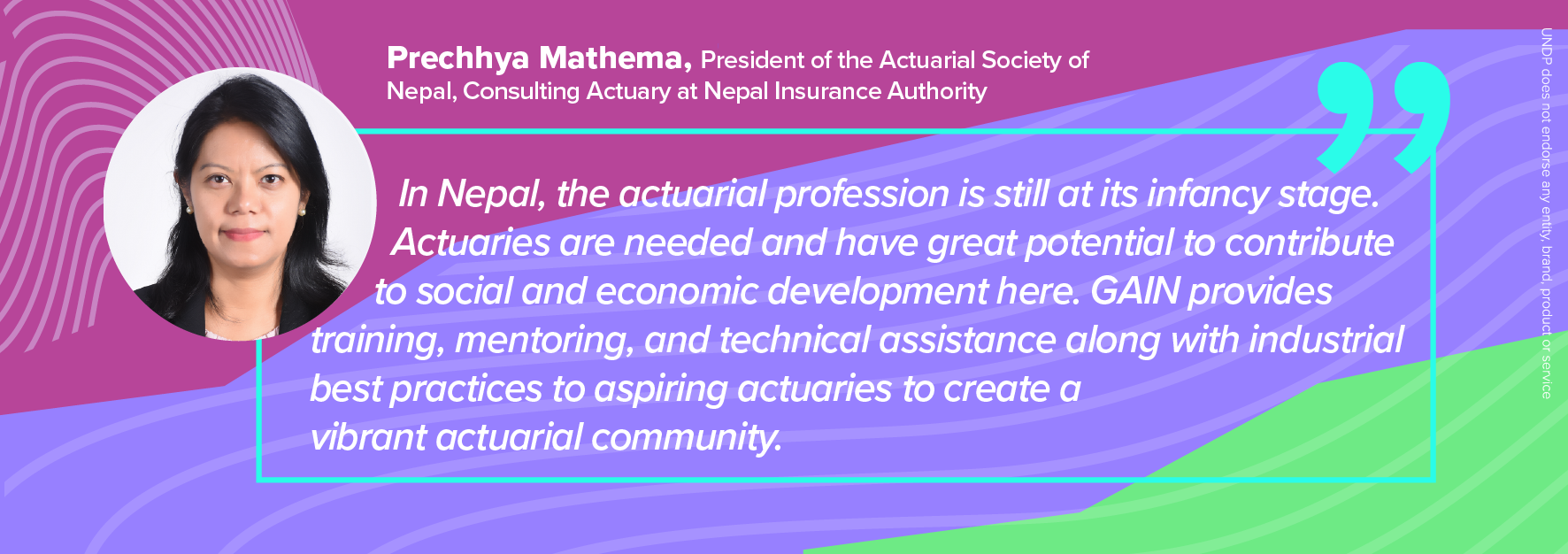
Bucking this trend are the women actuaries leading the GAIN working groups. These women are mainly representatives from the insurance industry and actuarial community across our 10 active programme countries—Egypt, Nepal, Nigeria, Colombia, Ghana, Ethiopia, Tanzania, Ecuador, Uzbekistan, and Vietnam.
In a male-dominated industry, where only 35% of participating working group members are women, the women actively involved as working group leaders in GAIN are leading with the highest level of engagement and contribution to the programme.
Amongst our programme staff and volunteers, close to 75% of hours (over 8,000 hours) are contributed by women. The theme of International Women’s Day this year is "Count Her In." Whether through accurately quantifying risks faced by women or bridging the gender gap in the actuarial profession, the future of development counts on increasing women’s financial resilience.
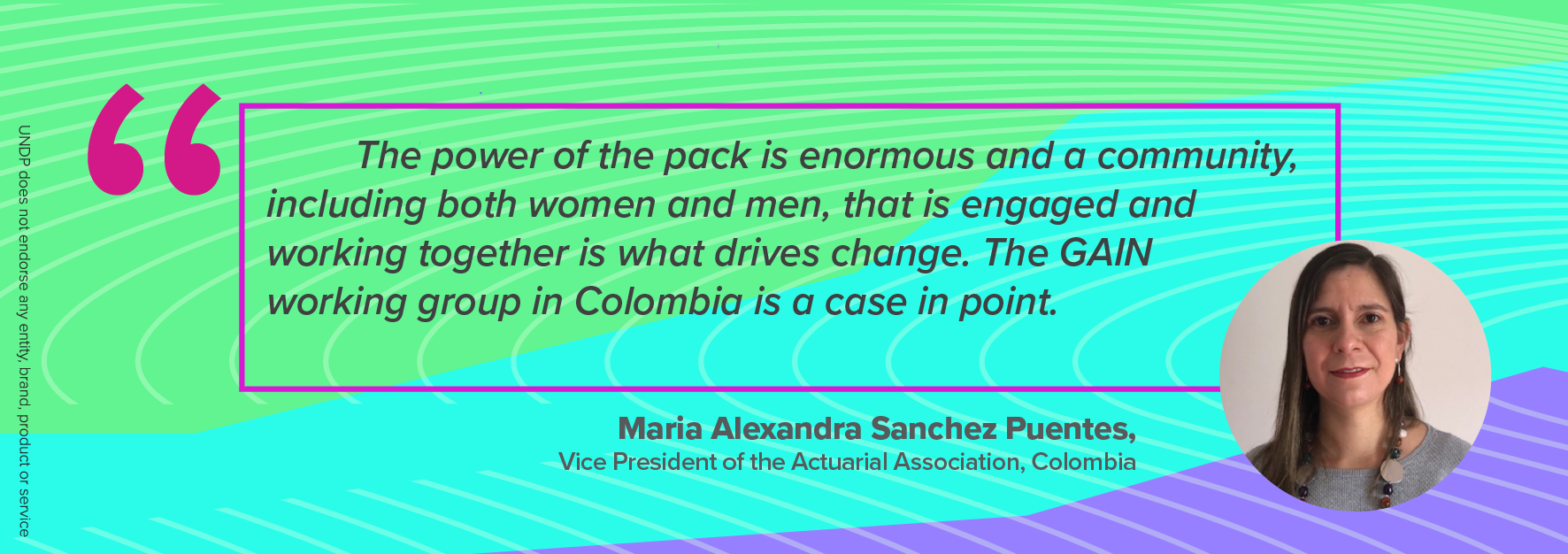
In many low-middle income countries with limited actuarial expertise, a number of obstacles prevail for female professionals. Effective mentorship has been one of the key gaps in career development. The mentorship program being piloted as part of GAIN is providing mentoring support from qualified, experienced actuaries across the world to young actuarial professionals in developing countries.
Whilst one may argue that the accumulative time contributions of mentors may not be significant, the inspiration and empowering effect it has on young professional leaders has large potential upsides.
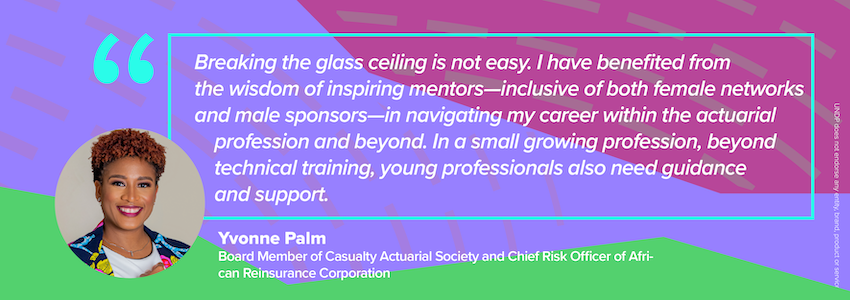
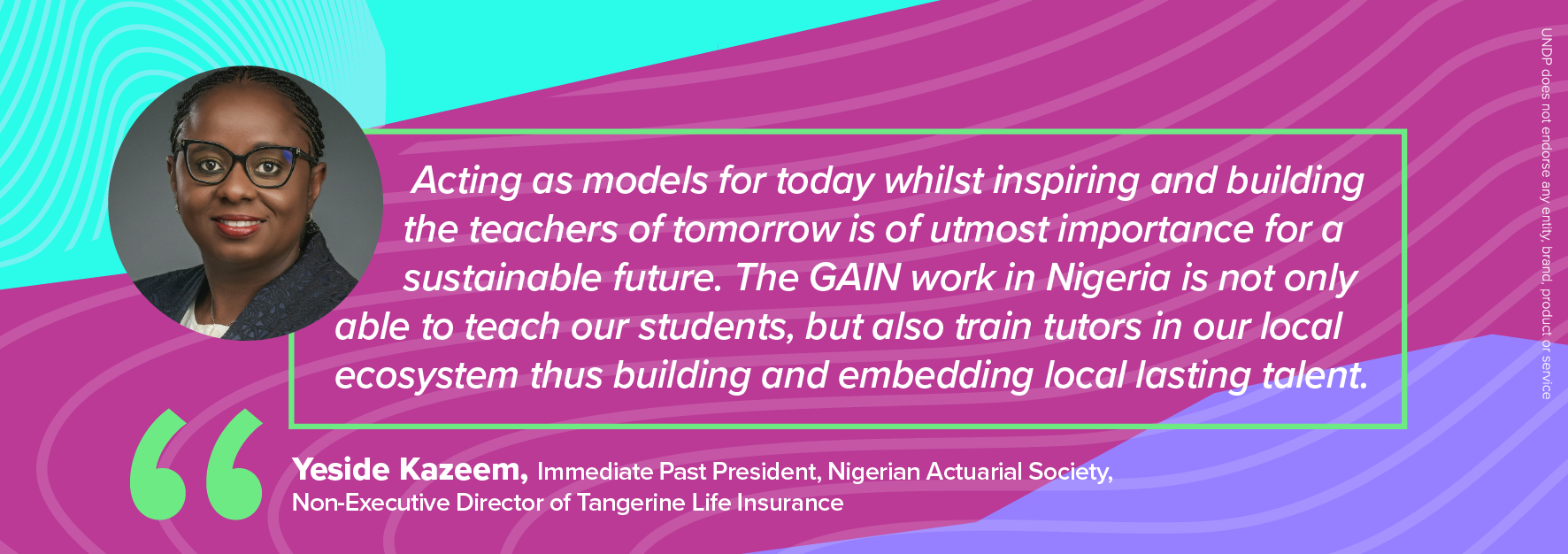
On International Women’s Day 2024, we recognize the incredible work that "sheros" working in the actuarial profession have contributed to gender equality. Yet, with the gender imbalance observed in our profession, we all have a role to #CountHerIn and invest in women to accelerate women’s equality and empowerment. Collaborations, mentorship, and humility are key ingredients to reach gender equality.
About GAIN
Milliman’s partnership with the United Nations Development Program (UNDP), known as the UNDP-Milliman Global Actuarial Initiative (GAIN) has a mission to grow actuarial capacity in developing countries to better manage the increasing risks faced by these countries. Since its launch in late 2022, this bold and unique initiative is thriving and growing, supporting 11 countries with insurance and risk finance solutions to face growing risks.
"A gender-sensitive approach is key to protecting communities and broadening financial inclusion."
"An improved understanding of the gender dynamics of risk and resilience allows for better policies, programmes, and product design. Protecting women is enabling protection for all, and actuaries therefore have an important role to play in quantifying risks in products designed for women and in supporting sustainable development."
— Linet Odera, Regional Lead Africa, UNDP Insurance & Risk Finance Facility
"Through connecting with female actuaries around the world, humility is identified as one of the key words to their life stories,"
"As a pro-bono program, the GAIN programme team continues to witness humanity, compassion, and the will to uplift others in the journey to empower the next generation of leaders in the actuarial profession and beyond."
— said Queenie Chow, senior programs director of GAIN, Milliman

